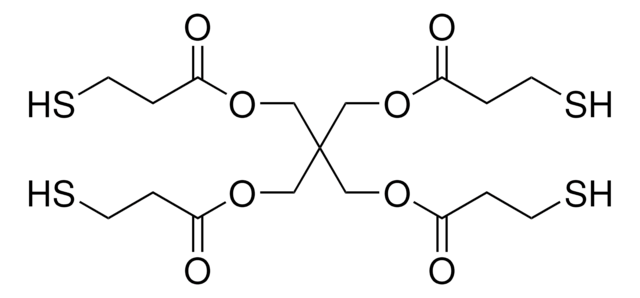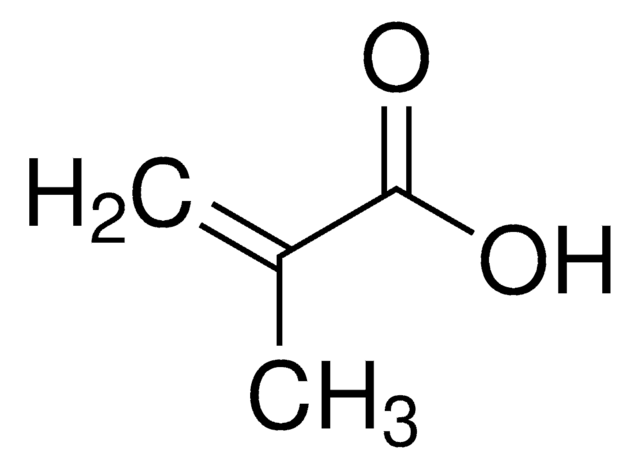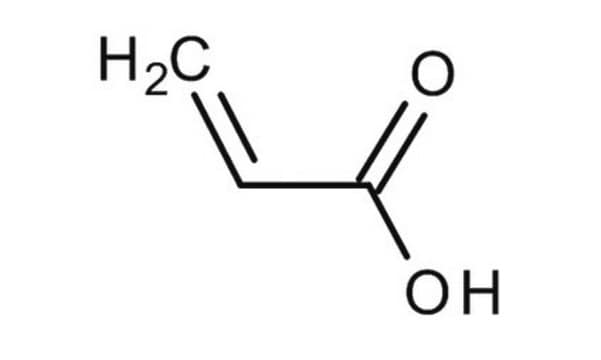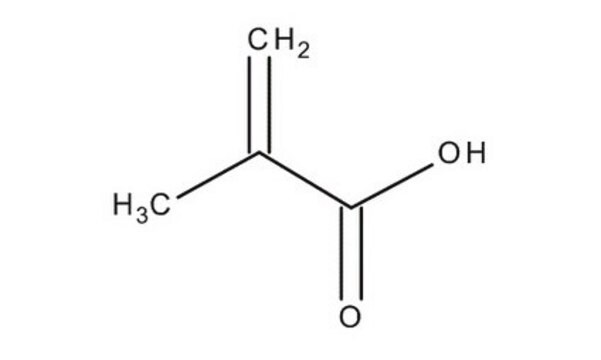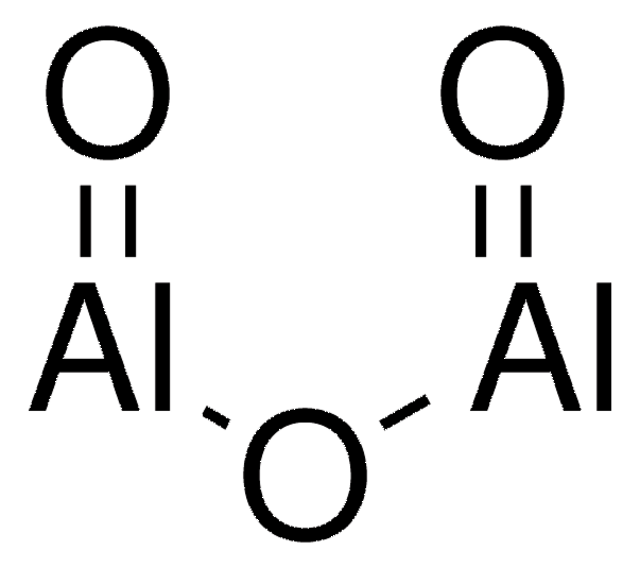A24109
Acryloyl chloride
≥97%, contains ~400 ppm phenothiazine as stabilizer
Synonym(s):
Acrylic acid chloride, prop-2-enoyl chloride, 2-Propenoyl chloride
About This Item
Recommended Products
vapor density
>1 (vs air)
Quality Level
vapor pressure
1.93 psi ( 20 °C)
Assay
≥97%
form
liquid
contains
~400 ppm phenothiazine as stabilizer
refractive index
n20/D 1.435 (lit.)
bp
72-76 °C (lit.)
density
1.114 g/mL at 25 °C (lit.)
storage temp.
2-8°C
SMILES string
ClC(=O)C=C
InChI
1S/C3H3ClO/c1-2-3(4)5/h2H,1H2
InChI key
HFBMWMNUJJDEQZ-UHFFFAOYSA-N
Looking for similar products? Visit Product Comparison Guide
Related Categories
General description
Application
- A monomer to synthesize crosslinked zwitterionic hydrogel coatings for sensing and detection in complex media.
- A reactant to synthesize crosslinked hydrogel film by reacting with a hydrophilic monomer called N,N-(dimethylacrylamide) (DMAA). The prepared hydrogel film is further used in sustained drug delivery.
- A monomer in the preparation of acrylate-based polymers with excellent n-type semiconducting properties, which are important for the development of organic electronic devices.
- The cyclam monomer. The polymer of this modified cyclam monomer can be used in specific transition metal binding.
Signal Word
Danger
Hazard Statements
Precautionary Statements
Hazard Classifications
Acute Tox. 1 Inhalation - Acute Tox. 4 Oral - Eye Dam. 1 - Flam. Liq. 2 - Met. Corr. 1 - Skin Corr. 1A
Supplementary Hazards
Storage Class Code
3 - Flammable liquids
WGK
WGK 3
Flash Point(F)
30.2 °F
Flash Point(C)
-1 °C
Regulatory Listings
Regulatory Listings are mainly provided for chemical products. Only limited information can be provided here for non-chemical products. No entry means none of the components are listed. It is the user’s obligation to ensure the safe and legal use of the product.
FSL
Flammable liquids
Type 1 petroleums
Hazardous rank II
Water insoluble liquid
ISHL Indicated Name
Substances Subject to be Indicated Names
ISHL Notified Names
Substances Subject to be Notified Names
Certificates of Analysis (COA)
Search for Certificates of Analysis (COA) by entering the products Lot/Batch Number. Lot and Batch Numbers can be found on a product’s label following the words ‘Lot’ or ‘Batch’.
Already Own This Product?
Find documentation for the products that you have recently purchased in the Document Library.
Customers Also Viewed
Our team of scientists has experience in all areas of research including Life Science, Material Science, Chemical Synthesis, Chromatography, Analytical and many others.
Contact Technical Service

